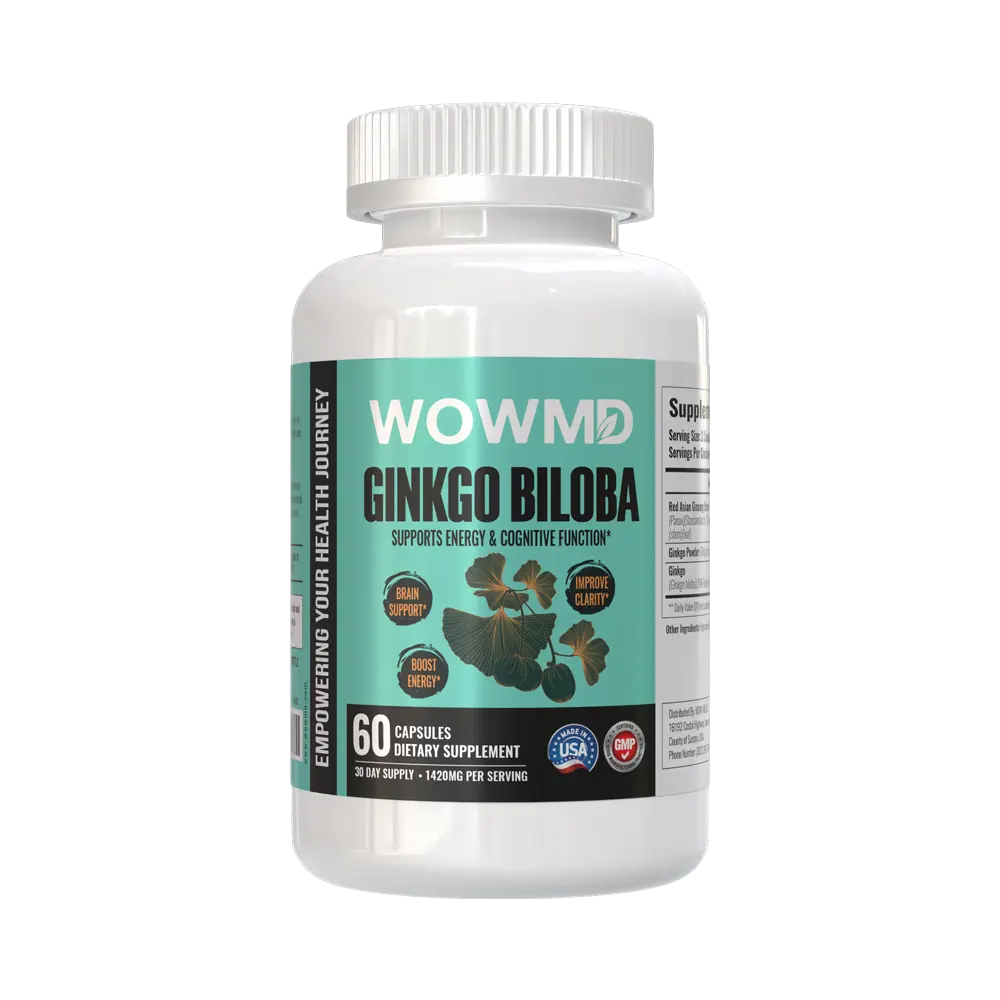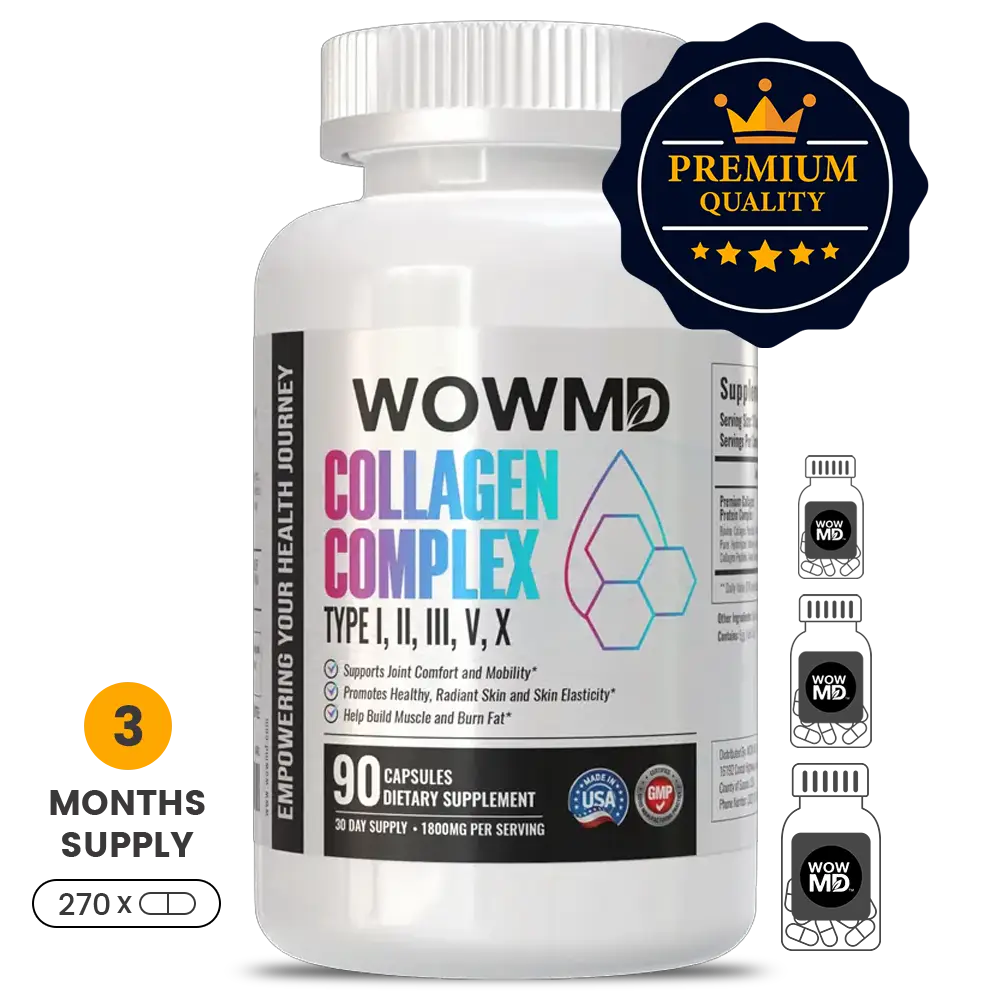Does Vitamin B12 Support Energy and Metabolism?
B12 is an essential vitamin needed for energy and metabolism. Find out what B12 is, how it supports energy and metabolism, and how to get the right amount in your diet.

Vitamin B12 is associated with enhancing energy levels, but most people do not really understand the true role it plays in energy metabolism.
While vitamin B12 does not give energy, it is very important to convert food into forms that could be utilized by the body for energy.
Key Takeaways
Vitamin B12 is also helpful in energy metabolism by facilitating the intracellular conversion of carbohydrates into ATP.
A deficiency in B12 can cause fatigue; once corrected, the energy level might come back. Most individuals get sufficient B12 from their diet, but certain populations may require supplementation.
Excessive intake of B12 does not enhance energy in those who are not deficient.
What is Vitamin B12?
It plays a very important role in various functions of the human body, including red blood cell formation, DNA synthesis, and maintenance of healthy nerve cells.
Unlike other vitamins, the body cannot synthesize B12 but gets it through dietary sources and supplements. Major food sources of vitamin B12 include animal products such as meat, fish, eggs, and dairy products.
In addition, vitamin B12 can be found in fortified foods and is available as an oral supplement or injectable form for individuals who are at risk for deficiency.
Vitamin B12 is vital for:
- Red Blood Cell Formation: It helps produce healthy red blood cells, preventing anemia.
- Nervous System Health: B12 supports the maintenance and development of nerve cells, crucial for proper neurological function.
- DNA Synthesis: It is essential for the creation and regulation of DNA, impacting cellular replication and health.
- Cognitive Function: Ample amounts of B12 foster good cognitive skills and may even lead to a reduction in incidents of memory loss.
Several experts are of the belief that Vitamin B12 is considered to play an important function in energy metabolism. Here, the recent studies and expert opinions provide insights into how vitamin B12 actually contributes to energy production along with overall metabolic health.
Contribution to Energy Production
According to a review by Global Healing, vitamin B12 is crucial in addressing the roots of energy loss at a cellular level. It plays a role in the production of hemoglobin in the red blood cells, which helps to carry oxygen throughout the body.
Without enough B12, the production of hemoglobin decreases, reducing oxygen availability to the muscles and organs, hence making a person feel tired and sluggish.
This suggests a relationship between B12 deficiency and chronic fatigue since correcting a deficiency often leads to an increased energy level.
Nutrient Metabolism
Vitamin B12 serves as a cofactor for two very important enzymes in metabolism: methionine synthase and L-methyl malonyl-CoA mutase.
Healthy levels of Methionine support the conversion of homocysteine to methionine, an amino acid used for many biochemical processes, including the synthesis of S-adenosylmethionine, a universal methyl donor3 that promotes metabolism.
Also, L-methyl malonyl-CoA mutase is involved in the conversion of L-methyl malonyl-CoA to succinyl-CoA, an important step in the metabolism of certain fatty acids34.
If vitamin B12 levels are inadequate, these metabolic pathways run less smoothly, and energy production from carbohydrates, fats, and proteins is not as efficient.
Implications of Deficiency
Research has shown that almost 40% of Americans have a deficiency in vitamin B12, which can severely affect energy levels and overall health1. One study reported in PubMed Central observed that vitamin B12 injections are effective in the normalization of metabolism and the resolution of symptoms due to deficiency.
Neurological symptoms, though, may take a longer period before they are completely resolved, which could imply that prolonged deficiency can cause long-lasting effects on cognitive function.
The Role of Vitamin B12 in Energy and Metabolism
How Vitamin B12 Contributes to Energy Production
Vitamin B12 is a nutrient that is very important to the energy metabolism process and, consequently, to overall metabolic health. It is essential for converting food into usable energy forms and is, therefore, critical to energy level maintenance and supporting other body functions.
Vitamin B12 supports the metabolism of energy at the cellular level, helping the body make hemoglobin. It carries oxygen from the lungs to the tissues in the muscles and brain. If the amount of B12 is not enough, the making of hemoglobin decreases; this reduces oxygen availability to muscles and the brain, possibly leading to symptoms of fatigue and a reduction in the ability to exercise.
Vitamin B12 also serves as a coenzyme for critical metabolic enzymes. For example, it is a main component that supports a process called L-methyl malonyl-CoA mutase reaction. These two reactions are involved, respectively, in the synthesis of amino acids and the metabolism of fatty acids as well as carbohydrates.
Its Role in Metabolism of Carbohydrates, Fats, and Proteins
Vitamin B12 has numerous roles in macronutrient metabolism:
- Carbohydrates: They help in changing glucose into ATP via several routes like glycolysis and Krebs cycle. A deficiency of B12 leads to increased blood sugar levels due to poor utilization of glucose.
- Fats: B12 participates in fatty acid breakdown for energy supply. It helps in the reduction of methyl malonyl-CoA to succinyl-CoA, an essential step in fatty acid metabolism.
- Proteins: The vitamin assists in protein metabolism by supporting amino acid synthesis and breakdown. This process is essential for maintaining muscle mass and overall energy levels.
Signs and Symptoms of Vitamin B12 Deficiency
Common Symptoms
- Fatigue: One of the most common symptoms of B12 deficiency includes chronic fatigue resulting from an inadequate amount of red blood cell production and transportation of oxygen.
- Weakness: Muscle weakness may also be present due to inadequate oxygen delivery to muscle tissues.
- Difficulty Concentrating: Cognitive function may be impaired, including problems with concentration and memory, due to neurological impairment.
Less Common Symptoms
- Neurological Problems: Severe deficiencies can cause neurological issues such as numbness or tingling of hands and feet, loss of balance, and even dementia or Alzheimer's disease.
- Digestive Problems: Some people have symptoms related to their gastrointestinal systems, which include constipation, diarrhea, or loss of appetite due to a lack of vitamin B12.
Food Sources of Vitamin B12
Vitamin B12 is highly essential in the body for energy production and overall health, hence can be sourced from different food items. Understanding these sources is paramount as it helps one maintain a sufficient level of this important nutrient.
Animal-Based Sources
Animal products are the most significant natural sources of vitamin B12. Key foods include the following:
- Liver: Beef liver is one of the richest sources of vitamin B12, providing several times the recommended daily intake in just a small serving.
- Beef: A typical serving of beef can deliver a substantial amount of B12, making it an excellent choice for those looking to boost their levels.
- Chicken and Turkey: These have average contents of B12, but the liver from Turkey is especially rich.
- Salmon and Tuna: These fish provide not only omega-3 fatty acids but also good amounts of vitamin B12, with one serving contributing a significant amount to the RDA.
- Eggs: Eggs are an accessible food source, where the content of vitamin B12 in one egg is mostly distributed in the yolk; one hard-boiled egg contains about 0.6 micrograms.
- Milk and Cheese: These are very good sources of B12. One glass of milk can provide a significant portion of the daily requirement.
Plant-Based Sources
- Fortified Foods: Many breakfast cereals and plant-based milks (such as soy or almond milk) are fortified with vitamin B12, making them excellent sources for non-meat eaters.
- Nutritional Yeast: This ingredient is often fortified with vitamin B12 and provides a cheesy flavor, making it a popular choice among vegans.
- Supplements: Vitamin B12 supplements are widely available in various forms, including tablets and capsules, which can be essential for individuals at risk of deficiency.
Vitamin B12 Supplements: All You Need to Know
Vitamin B12 supplements come in several forms:
- Oral Supplements: These include tablets and capsules that are taken by mouth. They are convenient and widely used.
- Sublingual Supplements: These dissolve under the tongue for faster absorption into the bloodstream. They may be beneficial for individuals who have absorption issues.
- Injections: Vitamin B12 injections are typically administered by healthcare professionals and are used for those with severe deficiencies or absorption problems.
Benefits and Drawbacks of Supplementation
Benefits:
- Increased Energy Levels: Many people report that taking vitamin B12 supplements helps improve energy levels, especially if they were previously deficient. This leads to questions like does vitamin b12 give you energy?
- Supports Metabolism: Vitamin B12 plays a role in supporting metabolism by aiding in the conversion of food into energy, prompting inquiries such as Does B12 affect metabolism?
Drawbacks:
- Potential Overuse: While B12 is water-soluble and excess amounts are usually excreted, some individuals may take excessive supplements without medical guidance.
- Cost: Regular supplementation can become expensive over time.
When to Consider Taking a Vitamin B12 Supplement
Consider taking a vitamin B12 supplement if you:
- Follow a vegetarian or vegan diet.
- Are older adults, as absorption may decrease with age?
- Have certain medical conditions affecting absorption (e.g., pernicious anemia).
- Experience symptoms of deficiency, such as fatigue or weakness.
Tips for Boosting Energy Levels Naturally
In addition to ensuring adequate vitamin B12 intake, there are several lifestyle strategies to boost energy levels naturally:
Adequate Sleep
Prioritize getting enough restful sleep each night to help your body recover and recharge.
Stress Management
Practice stress-reduction techniques such as mindfulness, meditation, or yoga to maintain mental clarity and energy.
Regular Exercise
Regular exercise is conducive to increased energy levels, therefore enhancing metabolic function overall. This is related to questions such as how quickly b12 speeds up metabolism.
A Balanced Diet
Eat a balance of your normal diet packed with whole foods that provide the body with key nutrients; from vitamin B12 to any other vital vitamins necessary for energy metabolism and answers like 'Which B vitamin gives energy?
Conclusion
Vitamin B12 is important in energy production and health metabolism. Understanding its food sources animal-based and fortified plant-based options helps individuals maintain adequate levels.
For those who may need additional support, various forms of supplementation are available. With proper nutrition and healthy lifestyle habits combined, individuals can successfully enhance their energy levels and overall well-being.
Questions like does b12 give you energy? Does B12 boost metabolism and others highlight the importance of this vital nutrient in our daily lives.
About WOWMD Staff
The WOWMD Staff category features a diverse team of writers, each bringing specialized knowledge in areas such as nutrition, fitness, wellness, and more. Articles in this category benefit from insights provided by multiple experts. All content is peer-reviewed and regularly updated to ensure compliance with our editorial standards.
References
- Water-Soluble Vitamins. In Textbook of Nutritional Biochemistry (pp. 291-389). Singapore: Springer Nature Singapore. https://doi.org/10.1016/B978-0-12-811907-5.00005-1
- A review on nutritional anemia. Indian Journal of Natural Sciences, 10(59), 18466-18474. https://www.researchgate.net/profile/Preetha-Bhadra-2/publication/342216517_A_Review_on_Nutritional_Anemia/links/5f64797b458515b7cf3c102a/A-Review-on-Nutritional-Anemia.pdf
- An overview of red blood cell properties and functions. Journal of International Research in Medical and Pharmaceutical Sciences, 19(2), 14-23 DOI: 10.56557/JIRMEPS/2024/v19i28667 http://repository.journal4submission.com/id/eprint/3782/1/Singh1922024JIRMEPS12042.pdf
- Biological properties of vitamin B12. Nutrition Research Reviews, 1-33 https://doi.org/10.1017/S0954422424000210
Evidence Based Research
This WOWMD content has been reviewed, as well as checked for facts, so as to guarantee the best possible accuracy.
We follow a strict editorial policy, especially related to the sources we use. Our articles are resourced from reputable online pages, with research drawn from academic institutions and peer-reviewed studies. You can click on the numbers in the parentheses (1, 2, etc.) and check out those references.
The feedback form on this page can be used to report content that is not accurate, up-to-date or questionable in any manner.
We do NOT intend for the information presented through our articles to replace the medical relationship with a qualified physician, nor does it represent specialized advice.


 Skin Detoxification Bundle
Skin Detoxification Bundle Complete Weight Loss Bundle
Complete Weight Loss Bundle Heart Care Bundle
Heart Care Bundle Better Immunity Bundle
Better Immunity Bundle  Men's Immunity & Prostate Health Bundle
Men's Immunity & Prostate Health Bundle Stress + Energy + Wellness Combo
Stress + Energy + Wellness Combo  Energy Booster Combo
Energy Booster Combo Natural Skin Care Bundle
Natural Skin Care Bundle Workout Supplements Combo
Workout Supplements Combo Cognitive Health & Vision Combo
Cognitive Health & Vision Combo Joint Health Support Combo
Joint Health Support Combo

















 By WOWMD Staff
By WOWMD Staff